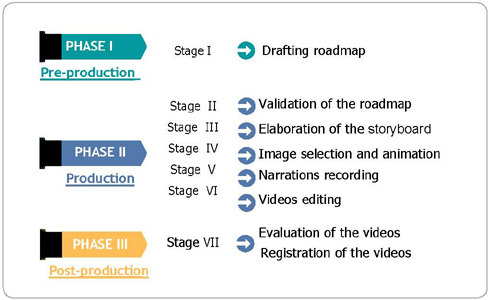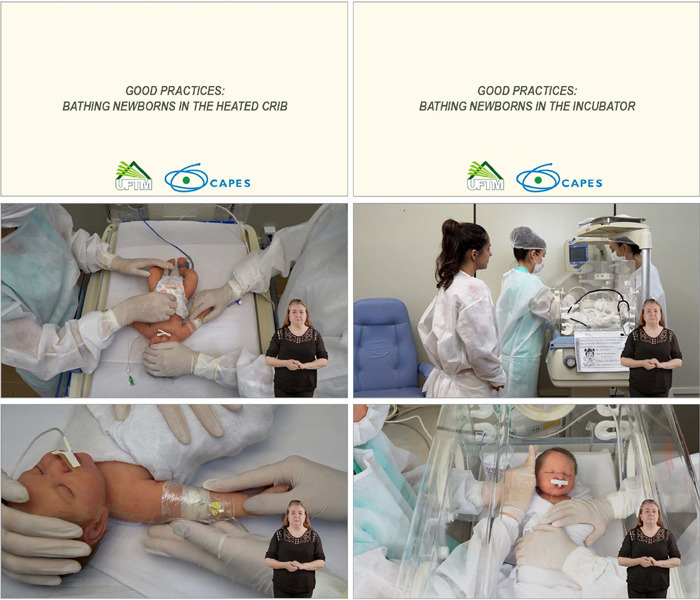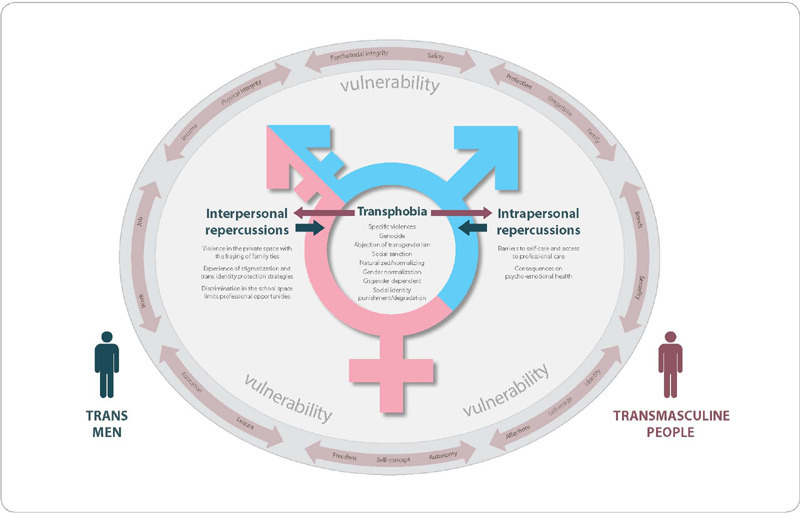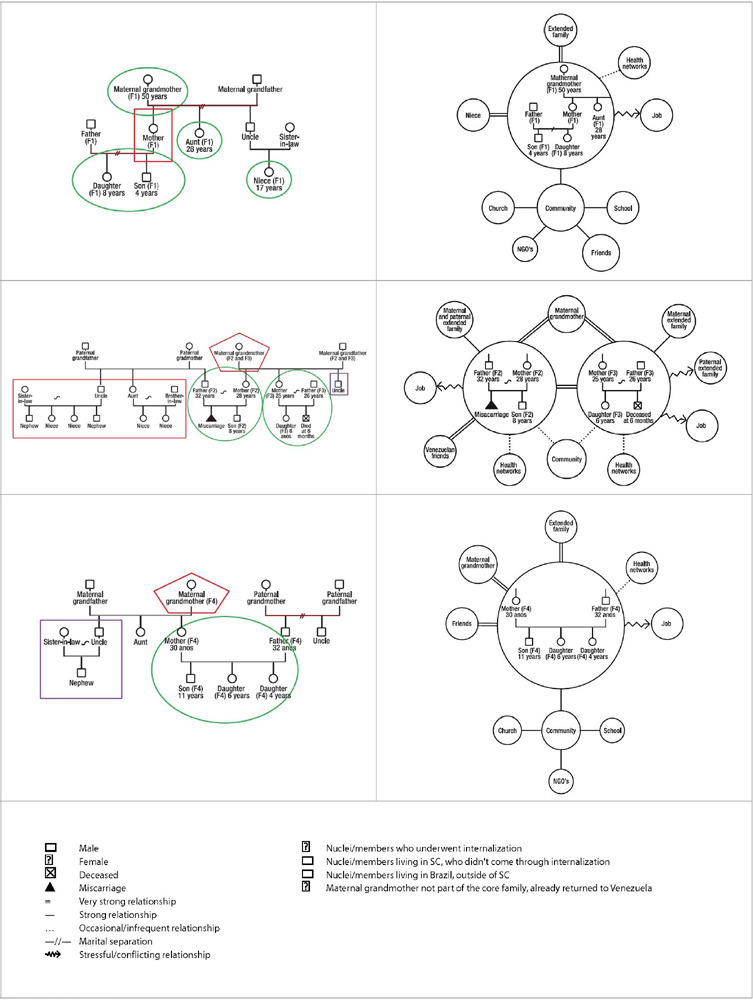-
EDITORIAL08-19-2024
Sexual abuse, abortion and public health in Brazil: when moral judgment accentuates inequities
Revista Brasileira de Enfermagem. 2024;77:e77suppl0401
Abstract
EDITORIALSexual abuse, abortion and public health in Brazil: when moral judgment accentuates inequities
Revista Brasileira de Enfermagem. 2024;77:e77suppl0401
DOI 10.1590/0034-7167.202477suppl0401
Views0Here is an academic-political editorial that aims to call on the scientific field to reflect on the dangers of decisions regarding the right to abortion under moral rules, since there is no evidence that such a perspective translates into practices of care, protection of childhood and gender equity – elements that are so urgent and […]See more -
ORIGINAL ARTICLE08-19-2024
The use of individual tracking programs in public health: a bioethics dilemma
Revista Brasileira de Enfermagem. 2024;77:e20230041
Abstract
ORIGINAL ARTICLEThe use of individual tracking programs in public health: a bioethics dilemma
Revista Brasileira de Enfermagem. 2024;77:e20230041
DOI 10.1590/0034-7167-2023-0041
Views0See moreABSTRACT
Objective:
to understand the bioethical perspectives on mobile tracking device use.
Methods:
theoretical study based on action research, carried out with eight graduate students from a public university. A focus group was used, with a thematic content analysis methodology with a codebook structure, approved by the Research Ethics Committee.
Results:
from the analysis, there was a concern about using devices after the pandemic ended. Using or not the device, rights inherent to humans, legislation and effectiveness of methods deepen interpretations, moving participants from a personalistic conception of the topic to a vision focused on professional implications about the methods.
Final considerations:
the debate on the impact of using technological devices on health, especially those that imply restriction of rights that refer to individuals’ private life, involves a discussion of a professional nature, in addition to requirement for clear rules on the topic.
-
ORIGINAL ARTICLE08-19-2024
Bioethical issues in the family health strategy: Considerations for nursing care management
Revista Brasileira de Enfermagem. 2024;77:e20220818
Abstract
ORIGINAL ARTICLEBioethical issues in the family health strategy: Considerations for nursing care management
Revista Brasileira de Enfermagem. 2024;77:e20220818
DOI 10.1590/0034-7167-2022-0818
Views0See moreABSTRACT
Objective:
To understand the bioethical issues involved in the care management of nurses working in the Family Health Strategy.
Method:
A qualitative study was conducted through five focus groups with 36 nurses selected in the sample. Thematic content analysis was performed based on the bioethical framework, and the synthesis was presented in a conceptual map.
Results:
Bioethical issues were identified in the nursing care practice, related to both specific bioethical themes and the peculiarities of the work. Additionally, challenges and facilitators that interfere with addressing these issues were identified.
Final considerations:
Understanding the bioethical issues involved in the care management of nurses was possible with the theoretical support of different bioethical perspectives. The identified issues relate to persistent and current themes in the field of bioethics. However, some aspects intrinsic to daily practice are still imperceptible to professionals, contributing to the difficulty of discussing bioethics in this care model.

-
REVIEW07-29-2024
Telenursing in the postoperative period: a scoping review
Revista Brasileira de Enfermagem. 2024;77(3):e20240066
Abstract
REVIEWTelenursing in the postoperative period: a scoping review
Revista Brasileira de Enfermagem. 2024;77(3):e20240066
DOI 10.1590/0034-7167-2024-0066
Views0See moreABSTRACT
Objectives:
to map available evidence on telenursing use in the postoperative period and its impact on patient outcomes.
Methods:
a scoping review, conducted according to the JBI model and the PRISMA-ScR checklist. The search was carried out in the CINAHL, Embase, LILACS, PubMed, Web of Science, SciELO, Scopus and Cochrane Library databases.
Results:
twelve studies were included, published between 2011 and 2023, 66.6% of which were in developed countries. Of the positive outcomes, we highlight improved levels of disability, autonomy and quality of life, lower rates of post-operative complications, pain and reduced costs. Telephone monitoring was the most widely used modality, but there were few studies in the pediatric context and in Brazil.
Conclusions:
of the studies, 11 (91.6%) identified at least one positive outcome in telenursing use and none showed negative aspects in the postoperative period. The role of nurses in digital health needs further study.

-
ORIGINAL ARTICLE07-29-2024
Men’s perception of paternal parenthood and the promotion of child development
Revista Brasileira de Enfermagem. 2024;77(3):e20230514
Abstract
ORIGINAL ARTICLEMen’s perception of paternal parenthood and the promotion of child development
Revista Brasileira de Enfermagem. 2024;77(3):e20230514
DOI 10.1590/0034-7167-2023-0514
Views0See moreABSTRACT
Objectives:
to comprehend men’s perception of paternal parenthood while caring for infants to promote child development.
Methods:
this qualitative study adopts an exploratory approach and was conducted with undergraduate and graduate students, faculty, and staff who are fathers of infants up to 6 months old from a higher education institution, excluding fathers from mononuclear families. Data collection occurred through semi-structured interviews and was analyzed using thematic categorical analysis.
Results:
fifteen men participated in the study. From the analysis, two empirical categories emerged: “Perception of being a father: challenges and novelties” and “Promotion of child development: actions carried out by fathers”. Fathers revealed feeling unprepared, the need for emotional support, and recognized activities aimed at their children’s development.
Final Considerations:
the relevance of the paternal figure for child development is highlighted, as well as the need for public policies to encourage paternal parenthood.
-
ORIGINAL ARTICLE07-29-2024
Contribution of informal caregivers to self-care in individuals with heart failure
Revista Brasileira de Enfermagem. 2024;77(3):e20230492
Abstract
ORIGINAL ARTICLEContribution of informal caregivers to self-care in individuals with heart failure
Revista Brasileira de Enfermagem. 2024;77(3):e20230492
DOI 10.1590/0034-7167-2023-0492
Views0See moreABSTRACT
Objectives:
to evaluate the contribution of informal caregivers to the self-care of individuals with heart failure.
Methods:
a cross-sectional study was conducted with 87 caregivers from March to October 2022 in the city of João Pessoa/PB. The caregivers’ contribution was assessed using the Caregiver Contribution to Self-Care of Heart Failure Index instrument. Scores ≥ 70 points indicate adequate contribution. Data were analyzed using descriptive statistics and Spearman’s correlation.
Results:
the sample consisted of 81.6% female caregivers. Median scores obtained for the self-care contribution scales were: 63.3 for maintenance; 55.5 for management; and 66.6 for confidence. Caregivers never or rarely recommended monitoring body weight, regular physical exercise, extra use of diuretics, and fluid restriction.
Conclusions:
informal caregivers showed inadequate contribution in the areas of maintenance, management, and confidence in self-care of individuals with heart failure.
-
Reflections on theoretical framework use in nursing research
Revista Brasileira de Enfermagem. 2024;77(3):e20230486
Abstract
Reflections on theoretical framework use in nursing research
Revista Brasileira de Enfermagem. 2024;77(3):e20230486
DOI 10.1590/0034-7167-2024-0486
Views0See moreABSTRACT
Objectives:
to reflect on theoretical framework use in nursing research.
Methods:
a theoretical-reflexive study, based on concepts and constructs pertinent to using nursing theories and other sciences, considering issues of epistemology or philosophy of science.
Results:
we presented what it is and why to do nursing research and what a theoretical framework is and why to use it, in addition to some considerations regarding theoretical framework use in nursing research, essential for constructing disciplinary knowledge, which enables the materialization of researchers’ work and the presentation of propositions resulting from investigations in and for nursing as a discipline and science.
Final Considerations:
based on a reflection based on epistemological conceptions, it is possible to affirm that a theoretical framework is the core of researchers’ thinking, delimiting a problem to be investigated and, based on it, outlining methodological strategies to be followed, supporting nursing action and thinking as discipline and science.

-
REVIEW07-29-2024
Nursing diagnoses for people hospitalized with heart failure: an integrative review
Revista Brasileira de Enfermagem. 2024;77(3):e20230471
Abstract
REVIEWNursing diagnoses for people hospitalized with heart failure: an integrative review
Revista Brasileira de Enfermagem. 2024;77(3):e20230471
DOI 10.1590/0034-7167-2023-0471
Views0See moreABSTRACT
Objectives:
to identify in the literature the main nursing diagnoses according to the NANDA-I diagnostic classification for people hospitalized with heart failure.
Methods:
an integrative literature review, carried out in February 2019 and updated in July 2023, in the MEDLINE via PubMed, LILACS, SciELO and CINAHL databases. Given the use of acronym PEO, studies without a time cut in Portuguese, English and Spanish were included. Descriptive analysis was carried out to present the identified information.
Results:
analysis of 27 articles identified 24 nursing diagnoses, with emphasis on Decreased Cardiac Output, Excessive Fluid Volume, Decreased Activity Tolerance and Fatigue.
Final Considerations:
evidence can contribute to better diagnostic decisions centered on people with heart failure in search of more assertive health results and have the potential to support future studies on a possible syndromic pattern in this population.

-
ORIGINAL ARTICLE12-08-2023
Sociodemographic factors associated with suicidal behavior at a federal public university in the Western Brazilian Amazon
Revista Brasileira de Enfermagem. 2023;76:e20230102
Abstract
ORIGINAL ARTICLESociodemographic factors associated with suicidal behavior at a federal public university in the Western Brazilian Amazon
Revista Brasileira de Enfermagem. 2023;76:e20230102
DOI 10.1590/0034-7167-2023-0102
Views0See moreABSTRACT
Objective:
to determine risk factors for suicidal behavior among students and employees of a federal public university in the Brazilian Western Amazon.
Methods:
an analytical cross-sectional study of survey and association between variables with a sample of 475 participants. Statistical analyzes were performed using the Mann-Whitney test, Pearson’s chi-square test, likelihood ratio test or Fisher’s exact test and a logistic regression model. A significance level of 5% was used (p-value< 0.05).
Results:
a higher proportion of suicidal behavior was found in younger participants, females, who had no religion or had one, but were non-practicing, who did not have children and/or had a monthly family income of less than two minimum wages. Lower proportions of suicidal behavior were identified in heterosexuals and/or married or in a stable relationship.
Conclusion:
the study suggests a relationship between sociodemographic factors and suicidal behavior in the studied academic community.
-
ORIGINAL ARTICLE12-08-2023
Polypharmacy, potentially inappropriate medications and associated factors among older adults with hypertension in primary care
Revista Brasileira de Enfermagem. 2023;76:e20220785
Abstract
ORIGINAL ARTICLEPolypharmacy, potentially inappropriate medications and associated factors among older adults with hypertension in primary care
Revista Brasileira de Enfermagem. 2023;76:e20220785
DOI 10.1590/0034-7167-2022-0785
Views0See moreABSTRACT
Objective:
to identify the prevalence and associations of polypharmacy and potentially inappropriate medication use among older adults with hypertension treated in primary care.
Methods:
a cross-sectional study carried out with older adults with hypertension treated at a Family Health Strategy unit. Data collection included analysis of medical records, interviews and multidimensional assessment of older adults. Socio-demographic information and clinical variables were collected. Statistical analysis was performed by multiple logistic regression.
Results:
polypharmacy prevalence was 38.09%, and potentially inappropriate medication (PIM), 28.57%. There was a significant association between polypharmacy and PIM use, altered sleep and ethnicity. PIM use was associated with polypharmacy, worse family functioning, and absence of a caregiver. Cognitive decline reduces the prevalence of these medications.
Conclusions:
polypharmacy and PIM use among older adults with hypertension represent a problem in this population, especially among the most vulnerable.
-
ORIGINAL ARTICLE12-08-2023
Care for older adults with disabilities in Long Term Care Facility
Revista Brasileira de Enfermagem. 2023;76:e20220767
Abstract
ORIGINAL ARTICLECare for older adults with disabilities in Long Term Care Facility
Revista Brasileira de Enfermagem. 2023;76:e20220767
DOI 10.1590/0034-7167-2022-0767
Views0See moreABSTRACT
Objective:
to analyze the constitution of care offered to older adults with disabilities, from Long Term Care Facility professionals’ perspective.
Methods:
this is a discourse analysis based on the post-structuralist framework. Participants in this study are professionals involved in the care for older adults, totaling 14 respondents, 13 women and one man.
Results:
from professionals’ perspective, there is a fine line between caring for older adults with disabilities and maintaining their autonomy. Care in which autonomy is restricted predisposes older adults to a process of dependency.
Final considerations:
caring for older adults with disabilities constitutes the challenge between caring and maintaining independence. Thus, older adult-centered care should be taken as a premise so that their individualities are respected.
-
ORIGINAL ARTICLE12-08-2023
Fear of COVID-19 when experiencing pregnancy or childbirth in the pandemic: what are the associated factors?
Revista Brasileira de Enfermagem. 2023;76:e20220755
Abstract
ORIGINAL ARTICLEFear of COVID-19 when experiencing pregnancy or childbirth in the pandemic: what are the associated factors?
Revista Brasileira de Enfermagem. 2023;76:e20220755
DOI 10.1590/0034-7167-2022-0755
Views0See moreABSTRACT
Objective:
to identify factors associated with fear of COVID-19 among women who experienced pregnancy or childbirth during the pandemic.
Methods:
a cross-sectional study, nested within a prospective cohort, using an online survey, from August 2021 to February 2022, based on descriptive data analysis.
Results:
of the 431 participants, 52.8% were postpartum women and 20.1% were pregnant women. With regard to fear of COVID-19, a mean score of 20.46 was obtained (moderate fear). The highest fear scores were present in women whose newborns were admitted to hospital in neonatal critical units (p=0.032), and the lowest among those covered by supplementary health (insurance) (p=0.016).
Conclusion:
among pregnant and postpartum women, high fear of COVID-19 translated into the possibility of having newborns admitted to hospital in a critical unit. The importance of supporting actions to support pregnant/postpartum women’s mental health in relation to COVID-19 or other threats that may influence the neonatal outcome stands out.
-
ORIGINAL ARTICLE12-08-2023
A relação entre o nível de conhecimento e o comportamento de prevenção do corrimento vaginal para estudantes de enfermagem
Revista Brasileira de Enfermagem. 2023;76:e20220602
Abstract
ORIGINAL ARTICLEA relação entre o nível de conhecimento e o comportamento de prevenção do corrimento vaginal para estudantes de enfermagem
Revista Brasileira de Enfermagem. 2023;76:e20220602
DOI 10.1590/0034-7167-2022-0602
Views0See moreRESUMEN
Objetivo:
la salud reproductiva de las adolescentes es muy importante. Determinar la relación entre el nivel de conocimientos y la conducta de prevención del flujo vaginal en estudiantes de enfermería.
Métodos:
estudio cuantitativo, transversal, con 155 estudiantes de primer año de una facultad privada de enfermería. Los datos se recopilaron de febrero a marzo de 2022 a través de un cuestionario electrónico.
Resultados:
los participantes con buen nivel de conocimientos correspondieron al 98,1% y los que practican buenas conductas para prevenir el flujo vaginal, el 92,3%.
Conclusión:
un buen conocimiento produce conductas de prevención adecuadas. El resultado de este estudio puede contribuir con reflexiones y referencias para un estudio más profundo de los factores que influyen en el nivel de conocimiento y comportamiento sobre la enfermedad de los genitales y los peligros del flujo vaginal patológico.
-
ORIGINAL ARTICLE12-08-2023
The relationship between level of knowledge and vaginal discharge prevention behavior for nursing student
Revista Brasileira de Enfermagem. 2023;76:e20220602
Abstract
ORIGINAL ARTICLEThe relationship between level of knowledge and vaginal discharge prevention behavior for nursing student
Revista Brasileira de Enfermagem. 2023;76:e20220602
DOI 10.1590/0034-7167-2022-0602
Views0See moreABSTRACT
Objective:
Reproductive health in adolescent girls is very important. To determine the relationship between the level of knowledge and the behavior of preventing vaginal discharge among nursing students.
Methods:
a quantitative, cross-sectional study, with 155 first-year female students at a private faculty of nursing. Data were collected from February to March 2022, using an electronic questionnaire.
Results:
98.1% of participants have a good level of knowledge and 92.3% of participants practice good vaginal discharge prevention behavior.
Conclusion:
good knowledge produces appropriate prevention behavior. The result of this study can be used as a contribution of thoughts and references as a more in-depth study of the factors that influence the level of knowledge and behavior about the disease of the genitalia and the dangers of pathological vaginal discharge.
-
Nursing experiences in specialized services in child and adolescent mental health: a systematic review of qualitative studies
Revista Brasileira de Enfermagem. 2023;76:e20220550
Abstract
Nursing experiences in specialized services in child and adolescent mental health: a systematic review of qualitative studies
Revista Brasileira de Enfermagem. 2023;76:e20220550
DOI 10.1590/0034-7167-2022-0550
Views0See moreABSTRACT
Objective:
to synthesize evidence from qualitative studies on nursing experiences regarding child and adolescent mental health care in specialized services.
Method:
a systematic review with meta-synthesis of qualitative studies according to JBI guidelines. CINAHL, EMBASE, MEDLINE, LILACS, PSYCinfo, Scopus and Web of Science databases were used. The findings were classified according to the level of reliability and credibility and categorized by similarity between contents.
Results:
229 articles were identified, and five were included in the final sample and organized into the categories: Emotional impact; and Understanding nursing role. The level of evidence found was moderate.
Final considerations:
nursing experiences are permeated by emotional exhaustion, feelings of frustration and difficulty in understanding their professional role. The need for training spaces that qualify this care is highlighted.

-
TECHNOLOGICAL INNOVATION11-13-2023
Digital technology for the prevention of healthcare-related infections in critical care
Revista Brasileira de Enfermagem. 2023;76:e20220528
Abstract
TECHNOLOGICAL INNOVATIONDigital technology for the prevention of healthcare-related infections in critical care
Revista Brasileira de Enfermagem. 2023;76:e20220528
DOI 10.1590/0034-7167-2022-0528
Views0See moreABSTRACT
Objective:
To develop digital technology for patient and family integration into the Intensive Care Unit care team, aiming to subsidize decision-making for the prevention of infections related to healthcare.
Method:
Methodological research of technological production in three phases: pre-production, production, and post-production in a teaching hospital in southern Brazil. Sixteen intensive care unit nurses participated.
Results:
The research produced six videos: general guidelines on the Intensive Care Unit, Preventing infections: hand hygiene; Pneumonia associated with mechanical ventilation; Catheter-associated primary bloodstream infection; Catheter-related urinary tract infection.
Final considerations:
The proposed technology was developed and aims to assist nurses in bringing patients and families closer to the routines of the intensive care environment to provide safety in the contact of the patient of intensive care units with family members and in the active participation for the prevention of infections related to healthcare.

-
ORIGINAL ARTICLE11-13-2023
Development of educational videos about bathing in bed newborns admitted to a neonatal unit
Revista Brasileira de Enfermagem. 2023;76:e20220778
Abstract
ORIGINAL ARTICLEDevelopment of educational videos about bathing in bed newborns admitted to a neonatal unit
Revista Brasileira de Enfermagem. 2023;76:e20220778
DOI 10.1590/0034-7167-2022-0778
Views0See moreABSTRACT
Objective:
to develop and analyze evidence of content validity of educational videos about bathing newborns in bed in a neonatal unit.
Method:
applied and methodological research, carried out from December/2020 to February/2022, in three phases: pre-production, production, post-production. Validity was carried out by nurses specializing in social communication and nursing professionals, including the Brazilian Sign Language and assessment by nursing students. The Content Validity Index and Cronbach’s alpha above 0.8 were considered for analysis.
Results:
the videos were entitled “Best practices: bathing newborns in the heated crib” and “Best practices: bathing newborns in the incubator”, lasting seven minutes each, divided into six scenes that demonstrated the approach to parents, environment and material organization, preparing newborns, bathing and after-bath care.
Conclusion:
the videos will support permanent education processes, academic training and professional training in nursing.

-
ORIGINAL ARTICLE11-13-2023
Vulnerability to physical inactivity: evidence of content validity and response processes
Revista Brasileira de Enfermagem. 2023;76:e20220563
Abstract
ORIGINAL ARTICLEVulnerability to physical inactivity: evidence of content validity and response processes
Revista Brasileira de Enfermagem. 2023;76:e20220563
DOI 10.1590/0034-7167-2022-0563
Views0See moreABSTRACT
Objective:
To analyze content validity evidence and response processes of a bank of items for measuring vulnerability to physical inactivity in adults.
Method:
Methodological study, with 13 specialists and 46 representatives of the target population. The Content Validity Index (CVI) and binomial test were calculated; data obtained through validity based on response processes were collected through interviews.
Results:
Of the 105 constructed items, 16 were excluded (CVI<0.78); 89 items showed agreement <80% in the psychometric criteria, being modified. Of the 101 items that remained (CVI>0.78), 34 were changed and 4 were deleted after evaluating the evidence of response processes. In the end, 97 items remained, with a global CVI of 0.92, organized into two dimensions: Subject (CVI=0.91) and Social (CVI=0.94).
Conclusion:
The items presented adequate parameters and evidence of validity; and can subsidize the construction of instruments that consider the subject’s and social vulnerability in understanding physical inactivity.
-
ORIGINAL ARTICLE11-13-2023
Transphobia as a social disease: discourses of vulnerabilities in trans men and transmasculine people
Revista Brasileira de Enfermagem. 2023;76:e20220183
Abstract
ORIGINAL ARTICLETransphobia as a social disease: discourses of vulnerabilities in trans men and transmasculine people
Revista Brasileira de Enfermagem. 2023;76:e20220183
DOI 10.1590/0034-7167-2022-0183
Views0See moreABSTRACT
Objective:
to analyze the repercussions of transphobia on trans men’s and transmasculine people’s health.
Method:
a qualitative study carried out with 38 participants, 35 trans men and three trans men, who attended specialized transgender health services in Bahia, Brazil. In-depth interviews were carried out between June 2019 and February 2020. The Discourse of Collective Subject technique was used and interpretation based on the theoretical concept of transphobia.
Results:
transphobia has intra and interpersonal repercussions on the life and health of trans men and transmasculine people who attend health services. There were experiences of violence in the private space, fraying of family ties; discrimination in the school space; limitation in professional/work opportunities; barriers to self-care and access to health services; elaboration of trans identity protection strategies; consequences of transphobia on psycho-emotional health.
Conclusion:
transphobia is a social disease that affects different life and health dimensions. It causes damage to the socialization of trans men and transmasculine people, in addition to health service spaces as well as in family environments, schools, universities and at work, which result in non-adherence to self-care, distancing from health services and psycho-emotional distress.

-
ORIGINAL ARTICLE11-10-2023
Validation of the Advanced Practice Nursing Competency Assessment Instrument in a hospital environment
Revista Brasileira de Enfermagem. 2023;76:e20220705
Abstract
ORIGINAL ARTICLEValidation of the Advanced Practice Nursing Competency Assessment Instrument in a hospital environment
Revista Brasileira de Enfermagem. 2023;76:e20220705
DOI 10.1590/0034-7167-2022-0705
Views0See moreABSTRACT
Objectives:
to evaluate the measurement properties of the Advanced Practice Nursing Competency Assessment Instrument – Brazilian version, in the hospital environment.
Methods:
a methodological study conducted in a hospital with 238 nurses. Three instruments collect the data: sample characterization form, Brazilian version of the Advanced Practice Nursing Competency Assessment Instrument, and the category “therapeutic interventions” of the nurse competence scale. Construct validity was verified by confirmatory factor analysis and Spearman’s correlation coefficient, and reliability by Cronbach’s Alpha and composite reliability.
Results:
in the factor analysis, the model converged to a satisfactory result. The study found acceptable evidence of reliability (Cronbach’s Alpha, 0.76-0.87; and composite reliability, 0.85-0.90).
Conclusions:
the instrument demonstrated evidence of construct validity and internal consistency and can be used in practice
-
TECHNOLOGICAL INNOVATION11-10-2023
HeLP: Development of occupational protection mask against surgical smoke
Revista Brasileira de Enfermagem. 2023;76:e20220647
Abstract
TECHNOLOGICAL INNOVATIONHeLP: Development of occupational protection mask against surgical smoke
Revista Brasileira de Enfermagem. 2023;76:e20220647
DOI 10.1590/0034-7167-2022-0647
Views0ABSTRACT
Objectives:
to describe a technological innovation in the development of an individual, ergonomic, sustainable and effective occupational respiratory protection mask for workers exposed to surgical smoke.
Methods:
applied, exploratory, quantitative research, using design methods and tools: Sense Intent, Know Context, Know People, Frame Insights, Explore Concepts, Frame Solutions, Realize Offerings, in addition to the Product Development Process tools. It was developed from March 2019 to December 2021.
Results:
from the prototyping mold, it became possible to represent the abstract to the physical, where all the concepts created in the methodological steps were implemented and the necessary adjustments were made to create the model as a technological innovation, which will have the concept for product commercialization.
Conclusions:
a mask for protection against surgical smoke (HeLP) was developed, from the design step to the prototype development, being a technological innovation.
Keywords:Air Pollutants, OccupationalPersonal Protective EquipmentRespiratory Protective DevicesSmokeTechnological Development and Innovation ProjectsSee more
-
TECHNOLOGICAL INNOVATION11-10-2023
Technology for the treatment promotion of adults living with HIV: Positive o Cuidado (Positive the Care)
Revista Brasileira de Enfermagem. 2023;76:e20220454
Abstract
TECHNOLOGICAL INNOVATIONTechnology for the treatment promotion of adults living with HIV: Positive o Cuidado (Positive the Care)
Revista Brasileira de Enfermagem. 2023;76:e20220454
DOI 10.1590/0034-7167-2022-0454
Views0See moreABSTRACT
Objectives:
to develop a responsive website focused on treatment adherence for adult users living with HIV.
Methods:
technological study conducted between August and October 2020, in the light of Pierre Lévy’s theoretical-philosophical framework, using the Double Diamond Process methodology associated with the five stages of The Elements of User Experience framework.
Results:
it was developed the responsive website Positive Care (Positive o Cuidado), composed of an initial presentation screen and 13 other screens named: Family Health and You; Undetectable = Untransmissible; Antiretroviral Drugs; Routine Tests; Vaccination; Antiretroviral Delivery; Drug Interactions; Combined Prevention; Support Services; Healthy Life; Family and Reproductive Planning; Covid 19; and Questions, Curiosities, and Myths.
Final Considerations:
the responsive website was developed based on the software design and programming process and has requirements/functionalities with the potential to strengthen the collective intelligence about HIV and, consequently, to promote treatment adherence by its users.

Search
Search in:
Nuvem de Tags
Aged (144) Atenção Primária à Saúde (239) COVID-19 (104) Cuidados de Enfermagem (269) Educação em Enfermagem (151) Educação em Saúde (139) Enfermagem (930) Estudos de Validação (131) Health Education (144) Idoso (208) Mental Health (149) Nursing (987) Nursing Care (306) Patient Safety (151) Primary Health Care (284) Qualidade de Vida (104) Quality of Life (106) Saúde Mental (145) Segurança do Paciente (150) Validation Studies (108)




